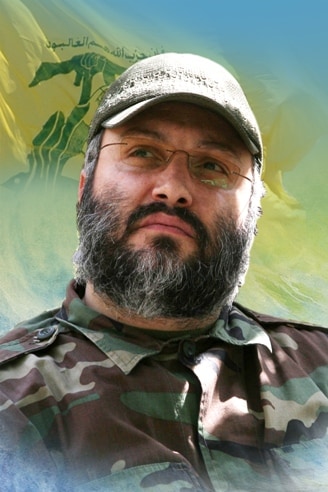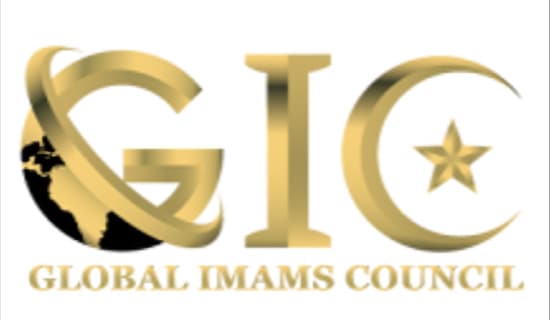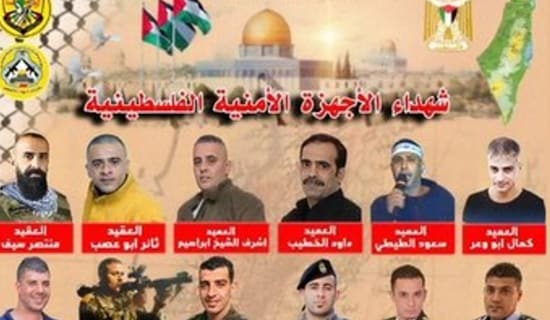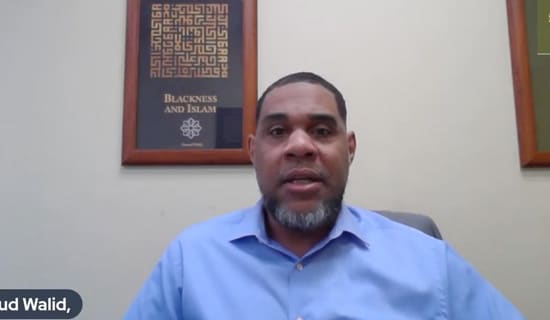In a July 27, 2013 article, Jean 'Aziz, a columnist for the pro-Hizbullah Lebanese daily Al-Akhbar, responded to the European decision to include Hizbullah's military wing in the list of terrorist organizations. He wrote that the Europeans know that there is no substance to the allegations that Hizbullah is involved in terrorist activity in Europe, and that the real reason for the U.S. and Gulf states' pressure on the E.U. to include Hizbullah in the list of terrorist organizations is Hizbullah's involvement in fighting in Syria alongside the regime there. He also claimed that in order to deflect these pressures, the Europeans had asked Hizbullah to stop its activity in Syria or at least to decrease it.
According to 'Aziz, the Europeans took similar measures vis-a-vis Hizbullah in the past, when they attempted to end the affair of Hizbullah's retaliation against Israel for the February 2008 killing of its security chief 'Imad Mughniyah. He claims that in that case, they intimated to Hizbullah that if the organization restricted its revenge to a limited attack on a minor Israeli representation in some remote location, this would not elicit a strong response from either Israel or the West – thus allowing all parties to lay the affair to rest.
'Aziz wrote that in both cases, Hizbullah rejected the European suggestions out of hand. He added that the E.U.'s decision regarding Hizbullah's military wing would harm Europe and Lebanon more than Hizbullah.
The following are excerpts from the article: [1]

'Imad Mughniyah (image: asianewslb.com)
Western Message To Hizbullah: If An Explosive Charge Were Detonated In A Remote Israeli Representation While It Was Empty, We Would Not Retaliate
'Aziz wrote: "One day, someone relayed to the Hizbullah leadership [the following] message from the West: 'If you want to take revenge on Israel for the elimination of [Hizbullah security chief] 'Imad Mughniyah, let's agree on a limited framework for your revenge, so as to end of the affair with minimum fuss for yourselves and for them [i.e., the Israelis].'
"The one who [relayed] the message was a diplomat, and its content can be characterized as a security assessment, as confirmed by the details of message [itself]. It hints that the Zionist entity has diplomatic representations that are semi-isolated, such as those in certain remote Asian countries, where there are limited staff and minimal security arrangements, and which receive scant attention from the West and even from Israel [itself] – and which, on certain days of the week, are nearly empty of staff.
"Later, the message shifts from hints to an explicit suggestion [that] if an explosive charge or something of the sort were detonated in one of these representations while it was empty, the incident would most likely pass without a forceful response from the West or a drastic response from Israel, and it would be possible to call it an act of revenge for [the killing of] Hajj Radhwan [i.e. 'Imad Mughniyah] and thus lay the matter to rest.
'Aziz added: "The Hizbullah leadership understood the true [purpose] of the message, which was to relieve Israel of the burden of maintaining a comprehensive and constant [state of] intelligence and security alert, as it has been doing since February 12, 2008, the day of Mughniyah's killing. It seems that the relevant [Israeli] figures assessed the cost of the never-ending [state of] alert, [weighing it] against the cost of a limited attack on a small Israeli representation, and unhesitatingly chose the latter option. The message, bearing an official Israeli and Western seal, was meant to put an end to the [Mughniyah] affair.
"However, understanding it was one thing and the response to it was another: [Hizbullah] rejected it out of hand, because Mughniyah's blood is not [an issue for] negotiation and the resistance does not deal in compromises.
SUPPORT OUR WORK

"[The response to] this message helped clarify two things to the Western and European agents who relayed it. First, that Hizbullah does not operate like a terrorist organization and therefore does not target civilians, and second, that Hizbullah will not relinquish the principle of proportionality in its resistance actions: it will not respond to a [single] bullet with all-out war, nor will it respond to all-out war with a [single] bullet."
European Message To Hizbullah: Cutting Back On Your Activity In Syria Will Allow Us To Avoid Adding You To Terror List
At a later point in the article, 'Aziz draws a similarity between the messages allegedly conveyed by Europe regarding the Mughniyah affair and messages it allegedly conveyed to Hizbullah before taking the decision to designate its military wing as a terrorist organization. He says that in both cases Europe implied a willingness to overlook Hizbullah activity that is unacceptable to the international community, if Hizbullah would agree to cut back somewhat on this activity. Just as in the Mughniyah affair, when the Europeans hinted that the West would tolerate a limited attack on a minor Israeli representation, this time it hinted to Hizbullah that a suspension – or even a mere reduction – of its military activity in Syria would enable Europe to avoid adding Hizbullah's military wing to the list of terrorist organizations.
According to 'Aziz, the Europeans "knew that the Bulgarian case [against Hizbullah][2] was weak and full of holes and question marks, and that the accusations regarding [its planned attacks in] Cyprus[3] were [nothing but] a charade... [Therefore,] only a few hours before the decision was taken [to include Hizbullah's military wing in the list of terrorist organizations], Hizbullah continued to receive diplomatic messages from Europe, via the Lebanese foreign ministry and senior Lebanese officials, and even directly, all of whom conveyed the same thing in different ways, namely: 'We [Europeans] will not succumb to the [Israeli and American] pressures to designate you as terrorists...'"
'Aziz claims that the situation changed when the U.S. and the Gulf states[4] started pressuring the Europeans to respond to Hizbullah's activity in Syria. "Suddenly, an order came down from the U.S. and the Gulf states, and the [European] tone changed, but became more sincere and transparent. At that point, [the Europeans] presented [Hizbullah] with a message similar to the one [they conveyed to the organization regarding] the revenge for [the killing of] Mughniyah... They told Hizbullah: 'Give us what you can in the Syrian arena, so we can help you. Declare your withdrawal from the Syrian conflict, or some sort of separation of forces there, or [at least] suspend your activities [there]. You can even confine [the declaration] to a specific area or wind up your mission at a certain point – anything that will improve our position [and help us] withstand the pressures.'
"This message too was rejected out of hand [by Hizbullah], especially since [the organization] viewed it as a trap and as bait aimed at solidifying the accusation against it and at casting it into a tunnel of an ever-tightening siege, in order to coerce [it] into further concessions later on."
Europe's Designation Of Hizbullah Harms Europe Itself By Preventing It From Playing A Role In The Region
According to 'Aziz, Europe's decision harms Europe itself, which has long been conducting a serious and comprehensive dialogue with Hizbullah at the highest levels. "The Europeans," he says, "heard sincere statements in the southern Dahiya in Beirut [the Hizbullah stronghold], which welcomed Europe playing a larger role in the region and in Lebanon [in light of] the developments expected there in the next few months. The crisis in Syria is [expected to be] protracted, and the [governmental] vacuum in Lebanon is expected to continue and to widen, [because], due to an inability to hold parliamentary elections, the resigned Mikati government, which has handed in its resignation, is likely to continue serving as an interim government for years…
"[Moreover,] everybody is getting the impression that the presidential elections [slated for May 2014] have become impossible, so in spring 2014 a complete [governmental] vacuum can be expected. Then, Lebanon will be faced with two alternatives. Either it will slide, immediately or gradually, into general anarchy, or else a mediator will come along who is geographically and morally neutral, who will unify the Lebanese, as occurred in Taif in 1989[5] or in Doha in 2008.[6]
"[At some point], in the spring of 2014 or later on, such a mediator will become a crucial necessity for Lebanon, since all the regional players and Lebanon's neighbors have become party to our conflict. Only Europe can fulfill this role. Was this the reason that [Europe] was forced to compromise this role?
"A few days ago the E.U. fired a political 'bullet' at Hizbullah's legs in order to intimidate it. [But] it seems that this bullet hit Europe [itself], in both its political legs, and may prevent it from operating in our region for an appreciable period to come. But the [real] apprehension is that if Europe does not retract its [decision], it is Lebanon that will be hit in a few months, at a spot near the heart."
Endnotes:
[1] Al-Akhbar (Lebanon), July 27, 2013.
[2] I.e., the allegations that Hizbullah was behind the July 18, 2012 attack on Israeli tourists in Burgas, Bulgaria.
[3] In late March 2013, a Cyprus court convicted a Hizbullah activist of planning attacks on Israeli tourists and targets on the island.
[4] It should be noted that the U.S. designated Hizbullah as a terrorist organization in 1995, without distinguishing between its military and political arms. Bahrain entered Hizbullah onto its list of terrorist organizations in April 2013 (see MEMRI Inquiry & Analysis No. 965, "Arab World Precedent: Bahrain Adds Hizbullah To List Of Terrorist Organizations May 7, 2013). The Gulf Cooperation Council (GCC) states recently designated Hizbullah as a terror organization as well, and resolved to consider taking measures against its interests within their borders; however, they did not officially enter it onto their list of terror organizations, on the grounds that this requires further investigation. Al-Quds Al-Arabi (London), June 2, 2013.
[5] The 1989 Taif Agreement put an end to the Lebanese civil war that broke out in 1975.
[6] The agreement signed in Qatar in 2008 between the Lebanese Al-Mustaqbal faction and Hizbullah ended a year-long crisis that threatened to pitch Lebanon into another civil war.




